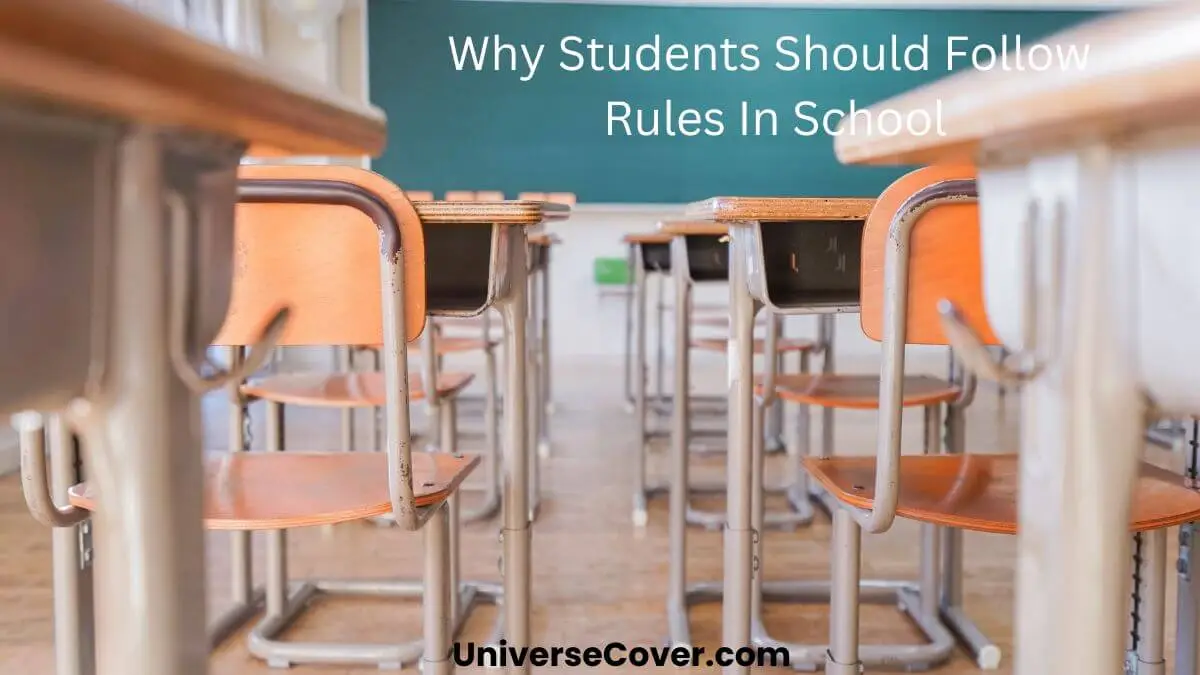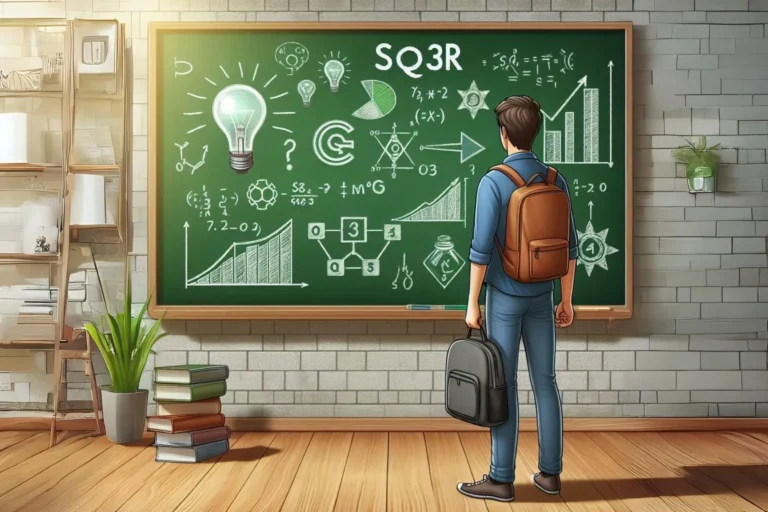- Essay Samples
- College Essay
- Writing Tools
- Writing guide

↑ Return to College Essay

Why are Rules Important?
In spite of the saying ‘Rules are made to be broken’, societies do not function without rules. It is true that we often admire people who are mavericks. Perhaps we envy them their willingness to break away from the norm. But rules serve a very useful, indeed essential purpose – they act as guidelines so that we all know what to expect from others, and how to conduct our lives.
Rules set boundaries, something that is essential for children to learn. They have to understand what is acceptable behaviour. But if we demand this of children, we also have to expect that adults continue to follow the rules as much as possible; otherwise we have anarchy. And society cannot function like this. Besides, even the most liberal person would say that some things are unacceptable; without rules, we have an ‘anything goes’ situation where people are going to be hurt and abused.
That said, those rules can change. If they did not, we would still have slavery and women would not have the vote. To a modern eye, it seems inconceivable that it was ever considered acceptable to own another human being and treat them with cruelty. It is thanks to those people who spoke against this abhorrent practice and who were willing to campaign to change the status quo that the law changed. Rules are based on a general consensus, and what the majority find acceptable can change over time. As a society, we have to evolve and improve. So where it was once considered that women did not have equal rights and that people of colour were not equal, now we rightly believe that everyone should have the same rights regardless of their gender or colour.
We also have to consider who makes the rules. Are they fair and realistic? Laws are essentially rules, and they are made by people in positions of power who may act in their own interests more than in the interests of the people they represent. When it comes to the law, people have to be careful that they do not put their liberty at risk. Yet they also have the right to speak out when they consider the laws to be unjust, and lobby for changes. However, laws have to be respected, otherwise there is little point in them existing.
If we wish to change the rules, it is generally better to try to do so in a lawful manner. Other people will not respond if we choose a violent or aggressive path. Indeed, they may become even more deeply entrenched in their opinions. However, if we explain why we feel changes need to be made, and work to persuade people that our opinions are just, then we stand a greater chance of success.
Rules help to organise society. They will vary from one society to another. One country may conduct matters quite differently from another. But the rules of each one help them to function. Those rules may be enshrined in law, or they may be unspoken. They help to protect people. If people choose to break those rules, they should also accept that there may be consequences. But we must always question whether rules are just, and if they need to be changed. What was appropriate for a society 100 years ago may no longer be relevant. If we do not review our rules from time to time, we become stagnant. So although it is important to have rules, they should be subject to change – providing that the vulnerable are protected and nobody else is harmed.

Follow Us on Social Media
Get more free essays

Send via email
Most useful resources for students:.
- Free Essays Download
- Writing Tools List
- Proofreading Services
- Universities Rating
Contributors Bio

Find more useful services for students
Free plagiarism check, professional editing, online tutoring, free grammar check.


Protecting Yourself From Fake Drugs & Counterfeit Medications

Does Tesla have Apple Carplay: Is Apple CarPlay Supported?

Marine Dies In Training Mishap Near Camp Lejeune, Identified Shortly After Recent Promotion

Where To See Northern Lights In USA: Epic Journeys To Witness Aurora In The Usa

Suspect In Kansas Mothers’ Murder Purchased Tasers, Burner Phones Before Disappearances, Searched For ‘Pain Level’: Documents

Secure Scaling: Tailored Cyber Security For Startups And SMEs

Why Is It Important To Follow Rules?
Imagine a world without set rules and regulations, a world without order and precepts, such a world would be one filled with chaos and anarchy. When the purpose of a thing is not known, abuse is inevitable. A lot of people do not like rules because to them it represents some sort o restriction. So why is it important to follow rules? We will discuss this and a few other points in this article.
Why is it important to follow the rules?
It is important to follow rules because life without rules, life won’t have order and meaning. The truth is that without rules and regulations the world as we know it today would have gotten plunged into total anarchy. For instance, if we all could do what we wanted to do in traffic, definitely accidents would be the order of the day. Rules are not a part of society as we know it; they are the fabric upon which societies get built. Also, the quality of life a group of people in a location enjoy is subject to the quality of rules obtainable and the level of adherence to the same . When a society gets governed by rules that are not friendly to the people, there is always going to be a situation where people will revolt against the rules .
What Exactly Are Rules?
Rules are a set of guidelines that got created in communities and countries and get used all as a standard. These rules usually differ from one place to the other and the differences are often determined by factors such as social interactions, beliefs, policies, and the method of governance in place. Also, the violators of these rules are often handled by the penalties which the laws of the land for the violations. It suffices to say that rules are good for guiding and monitoring the interactions that occur among the members of society.
Some rules are information such as the ones obtainable in schools. People who break such rules are often subjected to mild consequences such as detention. But there are other codified rules which every member of the society should abide by. Those who break these rules are often subjected to consequences such as paying a fine or even jail term.
What Makes Rules So Important To Us?
Why we should follow the rules set by society. Here is a breakdown of some core reasons why every society needs rules:
More often than not, the simplest rules are often needed to shield us from harm even from ourselves. Created Rules instructs us not to drive your car through a road when the traffic light gets red and not driving into a river are to protect us from harm. A look at the traffic regulations we have around will reveal to you why exactly they were set-up in the first place. The number of accidents we would be encountering daily if there were no rules .
Rules are also created to help protect us from each other because of our innate self-destruct potentials. For instance, if no rule addresses issues like murder and robbery, there is every chance that the crime rate would increase. Also, when these rules are not monitored and implemented, even the most basic of rules could get abused and even ignored.
2. Protection for the weak
Rules generally help protect the weaker class of the society because they are often at the receiving end when such rules get broken. In a society where rules get made and followed, they often create an ideal environment for people to co-exist thus creating order and peace. Rules get created to conform to the results desired. An instance of this is the fact that rules get created in schools to entrench trust and discipline. This, in turn, fosters a peaceful and serene environment for learning to take place.
3. Employment
In the case of job security, it is important to note that when you are obeying the rules of a company, it does not mean that your job will always get secured. But by following these rules, it means that you won’t lose your job out of carelessness. You receive a write-up when you are unable to adhere to the rules, this may not get you fired immediately, but it sure does reflect on your records. In a situation where an organization is downsizing, there is always a higher chance for rule defaulters to get fired. The same thing also applies in cases of promotions.
Why Are Rules And Regulations Important In An Organization?
Procedures and rules are two things that define the strength of any organization. The rules that are set-up go a long way in determining the type of company and what the culture of the organization would be per time. A company without rules would be in constant chaos and the level of productivity would be quite low.
An organization is the type of labor and the kind of work that is been done per time. The culture and employees of an organization go a long way in telling the nature of an organization these rules by organizations are set up by the management for the employees so that there won’t be a state of anarchy. All employees are often expected to adhere to these rules which also translate to seriousness and discipline among the employees. This also helps out in the growth of the company. When the rules get broken, it leaves a negative footprint on the organization because the ethics and culture of the organization may diminish. There are some terms that you must be mindful of when it comes to company rules.
What Are The Policies?
A policy is a principle of action that aims towards a certain business goal. It is a plan of action that should get carried out to meet some goals of the organization in their daily running. It is also the guidelines that dictate how employees and employers have to behave when they are in their workplace.
What Are The Procedures?
Procedures are a process that helps out in policy implementation. Well drafted procedures can help in removing obstacles and odds that may arise while you are working on a task to achieve defined goals .
What Are The Major Differences Between Procedures And Policies?
So far, we have been able to establish that policies and procedures are vital for the smooth operation of any organization. There exist some differences between both terms. Policies help you recognize the rules of a company and are usually general. Also, they explain who it covers and show the way it should get implemented. They can also get explained using simple paragraphs and sentences and they show the method of implementation of the rules. Procedures outline when the actions should get taken while also explaining the available alternatives. They also show the cautions and warnings and give examples. Procedures are often written in an outline format.
Here are some reasons why rules are important in an organization:
1. Discipline
This is one virtue that talks about the behavior of employees when they are on duty. But official and stern issues cannot get handled based on the behavior of the employees. Hence, for discipline to get maintained in an organization, there is a great need for each person in the company to adhere to the rules outlined by the company.
2. Helps complete the company
Companies function because of the existence of procedures and rules which put the employees in line. In a case where there are no, there would be a case of anarchy as everyone would only be guessing what should get done per time.
3. To achieve a common goal and aim
Employees are the engine room of any organization and rules must exist to guide them to certain goals and objectives. It is normal for each person to have their individual goals but it is even more important for all to work towards a certain defined goal.
4. Rules help define the culture of an organization
The rules and procedures that exist within an organization assist in setting the tempo for the work ethic and culture within a company. Any company that does not have functional rules will have a non-cooperative work culture.
Rules are not meant to frustrate and antagonize you per time. They get created to serve as a guide for a productive society. We have been able to establish that rules are very important for any society to make considerable progress. But rules are more effective when they get tailored per the need of the people it gets designed to serve per time.
You May Like These Articles As Well:
What Is A Mayhem Vote?
Head Of State Vs. Head Of Government: A Guide
Was FDR A Good President?
You may also like

Recent Posts
Popular posts.

Federal Authorities Investigate Texas Surgeon Accused of Denying Patients Critical Liver Transplants

6 Best Practices For Disability Inclusion In Recruitment

Common Occupational Hazards For Veterinarians

Homicide Of Florida WWII Veteran Milkman Solved Through Killer’s Ex-Wife

How it works
For Business
Join Mind Tools
Article • 9 min read
Why the Rules Are There
Helping people understand and enforce rules.
By the Mind Tools Content Team

Adults tend to resent rules – especially rules in the workplace. Have you, or the people around you, ever thought these things:
"Why can't they trust us?" "Do they think we're stupid or something!" "Isn't that just common sense?"
The reality is that not everyone has the same level of common sense or awareness of consequences, and not everyone can be trusted. That's why organizations need rules.
In a perfect world, we'd all do our jobs with integrity, honesty, safety, and concern for the well-being of stakeholders. But do you have to look far to find examples where this hasn't happened? People embezzle money from companies all the time. And they sometimes take extreme actions to cover up mistakes. A recent example is the French trader who created billions of dollars of debt for his employer, just to try to hide a bad mistake.
Why We Have Rules
Unfortunately, some people take advantage of situations for their benefit. That's why rules are necessary. It's also why you need to understand why the rules are there and what they protect. When you appreciate this, you can help yourself – and others – follow the rules and build more harmony in the workplace.
There are essentially two types of rules – those that keep people safe and satisfied, and those that protect the interests of the organization. Often these overlap.
A healthy and satisfied worker is usually more productive, and therefore both sides benefit. Consider a hospital policy for two nurses to check a drug label before giving it to a patient – this protects the nurses and the hospital from negligence claims (and it protects the patient as well!) When a rule states that before you operate a power saw, you must put the guide in place, wear protective eyeglasses, and never work alone, that's immediately understood and accepted.
When rules protect us, they're much easier to understand and follow. In these situations, the rules keep people safe. There's a solid link between the rule and the potential consequences.
But what if the connection isn't so clear? That's when we may have problems. And these rules are often much more important to the organization's health and well-being.
Setting the Rules the Right Way
One of the reasons people break rules is that there are too many of them, or that they don't make sense. Workers usually want to be respected and trusted. When you consider implementing a rule, evaluate it to determine if it's easy and reasonable to follow and what type of reaction it will receive.
Too often, companies establish rules to make up for poor communication and a culture of insensitivity toward workers. If you think that people on your team abuse their break time, you could set up a rule about how much time they can take during the day to go to the washroom – and then you could have someone track that time! Or, you could try to understand why people are demotivated and spending less time working.
A rule about bathroom breaks will probably do more harm than good. And that defeats the general purpose of a rule — to improve the health and well-being of the company and the people who work there.
Having too many rules can be harsh and unfair, and this can reduce trust (see our article on Herzberg's Motivators and Hygiene Factors to see how damaging this can be to motivation). However, trusting too much and not having enough rules – or not enforcing rules – can be equally dangerous.
When you have a team that works well together and things are running smoothly, it's easy to forget about enforcing rules. Let's say you're supposed to get two signatures on every check/check, but Sally has been with the company for eight years and is a model worker. You can trust her to sign checks on her own, can't you? Gradually, the "two-signature rule" is forgotten. Until your boss notices $50,000 missing.
Suddenly, that "two-signature rule" seems very reasonable and necessary. Although you never suspected the consequences, now you're in trouble.
So how do you get people to follow – and enforce – rules? Try these guidelines:
- Make sure the rule is reasonable. It should relate to your business interests and not just be a random, "because I said so" rule. If men must have short hair, then be prepared to defend your reasons and show how short hair contributes to success.
With any rule or policy, learn about laws that may affect it. Don't violate someone's rights by mistake because you didn't do your research. Most rules should relate to the company's legitimate business interests or be necessary to carry on operations in an orderly and efficient manner.
- Get staff buy-in. When people understand why a rule is in place, they're more likely to support it. When you consider a new rule or policy, educate the team about why you're taking action. Discuss the rule, and adjust it to meet everyone's needs.
- Stress the consequences. Make sure that people know the consequences of not following the rule. The rule itself must be clear, and the company must tell workers about it before punishing someone for breaking it. Use hypothetical examples to communicate the need for the rule.
- Track the use of the rule. To ensure that your rules aren't unnecessary or silly, monitor how supervisors and managers use them. This way, you'll know whether they're enforced, and enforced equally. You may also identify rules that aren't used at all. If this happens, take some time to figure out why the rule was created in the first place, and determine if it's still necessary or needs updating.
- Review your rules regularly. Society and businesses change – and that means your rules have to change too. A few years ago, we couldn't track staff with GPS-enabled cell phones or use the Internet to check out job applicants. Now we need rules for these things.
- Communicate new rules and changes to old rules. Use various ways to communicate – posters on bulletin boards, emails, meetings, and fliers. Your goal is for everyone to know the rule, not just the people who are directly affected. Include information on why the rule exists, why it needs to be enforced, and how it will improve the workplace.
- Train people to enforce the rules. Communicating that a rule exists isn't enough to make people follow it. Managers and supervisors should know what tools and support are available to them to enforce the rule. Stress that the rule has to be enforced consistently for everyone.
Workers should know that, if their behavior is obviously wrong, they can't simply rely on the fact that there's no written rule or they didn't know about the rule. For example, stealing and lying are clearly not allowed, and they can be grounds for discipline.
If a situation is unclear and no rule exists to cover it, ask yourself the following:
- Does the behavior undermine your team's mission?
- Does the behavior undermine the cohesiveness of the team?
- Does the behavior unnecessarily harm the legitimate interests of a member of the team?
If it does any of these, you may need to take action.
All workplaces have rules, and staff are expected to follow these rules. However, this isn't guaranteed.
Know how rules are viewed by others and what benefit the rules serve. By being more aware of how rules are interpreted and enforced, you can better understand which rules are needed and which are no longer useful.
Make sure your rules are reasonable, legitimate, and well communicated – and it's more likely they'll be accepted, followed, and enforced.
Apply This to Your Life
Look at the rules you have right now. Are they reasonable? Why or why not? If they're not reasonable, think of ways to make them stronger or more relevant – and, therefore, easier to enforce.
Do you enforce your workplace rules consistently? Does the team know the consequences of not following the rules? Do you support supervisors in enforcing them? What changes do you need to make sure these things happen?
What rules do you tend to ignore in your own work? Why do you ignore them? If a rule no longer serves a purpose, discuss it with your boss. If you need to be more careful in following rules, start now. Think of the potential consequences, and decide to be a rule follower.
You've accessed 1 of your 2 free resources.
Get unlimited access
Discover more content
Book Insights
The Star Factor: Discover What Your Top Performers Do Differently
William Seidman and Richard Grbavac
Top 10 Personal Morale Boosters
Stay Happy and Productive at Work
Add comment
Comments (0)
Be the first to comment!

Try Mind Tools for FREE
Get unlimited access to all our career-boosting content and member benefits with our 7-day free trial.
Sign-up to our newsletter
Subscribing to the Mind Tools newsletter will keep you up-to-date with our latest updates and newest resources.
Subscribe now
Business Skills
Personal Development
Leadership and Management
Member Extras
Most Popular
Newest Releases

What Is Gibbs' Reflective Cycle?

Team Briefings
Mind Tools Store
About Mind Tools Content
Discover something new today
Onboarding with steps.
Helping New Employees to Thrive
NEW! Pain Points Podcast - Perfectionism
Why Am I Such a Perfectionist?
How Emotionally Intelligent Are You?
Boosting Your People Skills
Self-Assessment
What's Your Leadership Style?
Learn About the Strengths and Weaknesses of the Way You Like to Lead
Recommended for you
Handling difficult conversations.
Tips for Tackling Tricky Conversations in a Professional and Supportive Way
Business Operations and Process Management
Strategy Tools
Customer Service
Business Ethics and Values
Handling Information and Data
Project Management
Knowledge Management
Self-Development and Goal Setting
Time Management
Presentation Skills
Learning Skills
Career Skills
Communication Skills
Negotiation, Persuasion and Influence
Working With Others
Difficult Conversations
Creativity Tools
Self-Management
Work-Life Balance
Stress Management and Wellbeing
Coaching and Mentoring
Change Management
Team Management
Managing Conflict
Delegation and Empowerment
Performance Management
Leadership Skills
Developing Your Team
Talent Management
Problem Solving
Decision Making
Member Podcast
- Search Menu
- Browse content in Arts and Humanities
- Browse content in Archaeology
- Anglo-Saxon and Medieval Archaeology
- Archaeological Methodology and Techniques
- Archaeology by Region
- Archaeology of Religion
- Archaeology of Trade and Exchange
- Biblical Archaeology
- Contemporary and Public Archaeology
- Environmental Archaeology
- Historical Archaeology
- History and Theory of Archaeology
- Industrial Archaeology
- Landscape Archaeology
- Mortuary Archaeology
- Prehistoric Archaeology
- Underwater Archaeology
- Urban Archaeology
- Zooarchaeology
- Browse content in Architecture
- Architectural Structure and Design
- History of Architecture
- Residential and Domestic Buildings
- Theory of Architecture
- Browse content in Art
- Art Subjects and Themes
- History of Art
- Industrial and Commercial Art
- Theory of Art
- Biographical Studies
- Byzantine Studies
- Browse content in Classical Studies
- Classical Literature
- Classical Reception
- Classical History
- Classical Philosophy
- Classical Mythology
- Classical Art and Architecture
- Classical Oratory and Rhetoric
- Greek and Roman Papyrology
- Greek and Roman Archaeology
- Greek and Roman Epigraphy
- Greek and Roman Law
- Late Antiquity
- Religion in the Ancient World
- Digital Humanities
- Browse content in History
- Colonialism and Imperialism
- Diplomatic History
- Environmental History
- Genealogy, Heraldry, Names, and Honours
- Genocide and Ethnic Cleansing
- Historical Geography
- History by Period
- History of Emotions
- History of Agriculture
- History of Education
- History of Gender and Sexuality
- Industrial History
- Intellectual History
- International History
- Labour History
- Legal and Constitutional History
- Local and Family History
- Maritime History
- Military History
- National Liberation and Post-Colonialism
- Oral History
- Political History
- Public History
- Regional and National History
- Revolutions and Rebellions
- Slavery and Abolition of Slavery
- Social and Cultural History
- Theory, Methods, and Historiography
- Urban History
- World History
- Browse content in Language Teaching and Learning
- Language Learning (Specific Skills)
- Language Teaching Theory and Methods
- Browse content in Linguistics
- Applied Linguistics
- Cognitive Linguistics
- Computational Linguistics
- Forensic Linguistics
- Grammar, Syntax and Morphology
- Historical and Diachronic Linguistics
- History of English
- Language Evolution
- Language Reference
- Language Variation
- Language Families
- Language Acquisition
- Lexicography
- Linguistic Anthropology
- Linguistic Theories
- Linguistic Typology
- Phonetics and Phonology
- Psycholinguistics
- Sociolinguistics
- Translation and Interpretation
- Writing Systems
- Browse content in Literature
- Bibliography
- Children's Literature Studies
- Literary Studies (Romanticism)
- Literary Studies (American)
- Literary Studies (Modernism)
- Literary Studies (Asian)
- Literary Studies (European)
- Literary Studies (Eco-criticism)
- Literary Studies - World
- Literary Studies (1500 to 1800)
- Literary Studies (19th Century)
- Literary Studies (20th Century onwards)
- Literary Studies (African American Literature)
- Literary Studies (British and Irish)
- Literary Studies (Early and Medieval)
- Literary Studies (Fiction, Novelists, and Prose Writers)
- Literary Studies (Gender Studies)
- Literary Studies (Graphic Novels)
- Literary Studies (History of the Book)
- Literary Studies (Plays and Playwrights)
- Literary Studies (Poetry and Poets)
- Literary Studies (Postcolonial Literature)
- Literary Studies (Queer Studies)
- Literary Studies (Science Fiction)
- Literary Studies (Travel Literature)
- Literary Studies (War Literature)
- Literary Studies (Women's Writing)
- Literary Theory and Cultural Studies
- Mythology and Folklore
- Shakespeare Studies and Criticism
- Browse content in Media Studies
- Browse content in Music
- Applied Music
- Dance and Music
- Ethics in Music
- Ethnomusicology
- Gender and Sexuality in Music
- Medicine and Music
- Music Cultures
- Music and Media
- Music and Culture
- Music and Religion
- Music Education and Pedagogy
- Music Theory and Analysis
- Musical Scores, Lyrics, and Libretti
- Musical Structures, Styles, and Techniques
- Musicology and Music History
- Performance Practice and Studies
- Race and Ethnicity in Music
- Sound Studies
- Browse content in Performing Arts
- Browse content in Philosophy
- Aesthetics and Philosophy of Art
- Epistemology
- Feminist Philosophy
- History of Western Philosophy
- Metaphysics
- Moral Philosophy
- Non-Western Philosophy
- Philosophy of Language
- Philosophy of Mind
- Philosophy of Perception
- Philosophy of Action
- Philosophy of Law
- Philosophy of Religion
- Philosophy of Science
- Philosophy of Mathematics and Logic
- Practical Ethics
- Social and Political Philosophy
- Browse content in Religion
- Biblical Studies
- Christianity
- East Asian Religions
- History of Religion
- Judaism and Jewish Studies
- Qumran Studies
- Religion and Education
- Religion and Health
- Religion and Politics
- Religion and Science
- Religion and Law
- Religion and Art, Literature, and Music
- Religious Studies
- Browse content in Society and Culture
- Cookery, Food, and Drink
- Cultural Studies
- Customs and Traditions
- Ethical Issues and Debates
- Hobbies, Games, Arts and Crafts
- Lifestyle, Home, and Garden
- Natural world, Country Life, and Pets
- Popular Beliefs and Controversial Knowledge
- Sports and Outdoor Recreation
- Technology and Society
- Travel and Holiday
- Visual Culture
- Browse content in Law
- Arbitration
- Browse content in Company and Commercial Law
- Commercial Law
- Company Law
- Browse content in Comparative Law
- Systems of Law
- Competition Law
- Browse content in Constitutional and Administrative Law
- Government Powers
- Judicial Review
- Local Government Law
- Military and Defence Law
- Parliamentary and Legislative Practice
- Construction Law
- Contract Law
- Browse content in Criminal Law
- Criminal Procedure
- Criminal Evidence Law
- Sentencing and Punishment
- Employment and Labour Law
- Environment and Energy Law
- Browse content in Financial Law
- Banking Law
- Insolvency Law
- History of Law
- Human Rights and Immigration
- Intellectual Property Law
- Browse content in International Law
- Private International Law and Conflict of Laws
- Public International Law
- IT and Communications Law
- Jurisprudence and Philosophy of Law
- Law and Society
- Law and Politics
- Browse content in Legal System and Practice
- Courts and Procedure
- Legal Skills and Practice
- Primary Sources of Law
- Regulation of Legal Profession
- Medical and Healthcare Law
- Browse content in Policing
- Criminal Investigation and Detection
- Police and Security Services
- Police Procedure and Law
- Police Regional Planning
- Browse content in Property Law
- Personal Property Law
- Study and Revision
- Terrorism and National Security Law
- Browse content in Trusts Law
- Wills and Probate or Succession
- Browse content in Medicine and Health
- Browse content in Allied Health Professions
- Arts Therapies
- Clinical Science
- Dietetics and Nutrition
- Occupational Therapy
- Operating Department Practice
- Physiotherapy
- Radiography
- Speech and Language Therapy
- Browse content in Anaesthetics
- General Anaesthesia
- Neuroanaesthesia
- Clinical Neuroscience
- Browse content in Clinical Medicine
- Acute Medicine
- Cardiovascular Medicine
- Clinical Genetics
- Clinical Pharmacology and Therapeutics
- Dermatology
- Endocrinology and Diabetes
- Gastroenterology
- Genito-urinary Medicine
- Geriatric Medicine
- Infectious Diseases
- Medical Toxicology
- Medical Oncology
- Pain Medicine
- Palliative Medicine
- Rehabilitation Medicine
- Respiratory Medicine and Pulmonology
- Rheumatology
- Sleep Medicine
- Sports and Exercise Medicine
- Community Medical Services
- Critical Care
- Emergency Medicine
- Forensic Medicine
- Haematology
- History of Medicine
- Browse content in Medical Skills
- Clinical Skills
- Communication Skills
- Nursing Skills
- Surgical Skills
- Medical Ethics
- Browse content in Medical Dentistry
- Oral and Maxillofacial Surgery
- Paediatric Dentistry
- Restorative Dentistry and Orthodontics
- Surgical Dentistry
- Medical Statistics and Methodology
- Browse content in Neurology
- Clinical Neurophysiology
- Neuropathology
- Nursing Studies
- Browse content in Obstetrics and Gynaecology
- Gynaecology
- Occupational Medicine
- Ophthalmology
- Otolaryngology (ENT)
- Browse content in Paediatrics
- Neonatology
- Browse content in Pathology
- Chemical Pathology
- Clinical Cytogenetics and Molecular Genetics
- Histopathology
- Medical Microbiology and Virology
- Patient Education and Information
- Browse content in Pharmacology
- Psychopharmacology
- Browse content in Popular Health
- Caring for Others
- Complementary and Alternative Medicine
- Self-help and Personal Development
- Browse content in Preclinical Medicine
- Cell Biology
- Molecular Biology and Genetics
- Reproduction, Growth and Development
- Primary Care
- Professional Development in Medicine
- Browse content in Psychiatry
- Addiction Medicine
- Child and Adolescent Psychiatry
- Forensic Psychiatry
- Learning Disabilities
- Old Age Psychiatry
- Psychotherapy
- Browse content in Public Health and Epidemiology
- Epidemiology
- Public Health
- Browse content in Radiology
- Clinical Radiology
- Interventional Radiology
- Nuclear Medicine
- Radiation Oncology
- Reproductive Medicine
- Browse content in Surgery
- Cardiothoracic Surgery
- Gastro-intestinal and Colorectal Surgery
- General Surgery
- Neurosurgery
- Paediatric Surgery
- Peri-operative Care
- Plastic and Reconstructive Surgery
- Surgical Oncology
- Transplant Surgery
- Trauma and Orthopaedic Surgery
- Vascular Surgery
- Browse content in Science and Mathematics
- Browse content in Biological Sciences
- Aquatic Biology
- Biochemistry
- Bioinformatics and Computational Biology
- Developmental Biology
- Ecology and Conservation
- Evolutionary Biology
- Genetics and Genomics
- Microbiology
- Molecular and Cell Biology
- Natural History
- Plant Sciences and Forestry
- Research Methods in Life Sciences
- Structural Biology
- Systems Biology
- Zoology and Animal Sciences
- Browse content in Chemistry
- Analytical Chemistry
- Computational Chemistry
- Crystallography
- Environmental Chemistry
- Industrial Chemistry
- Inorganic Chemistry
- Materials Chemistry
- Medicinal Chemistry
- Mineralogy and Gems
- Organic Chemistry
- Physical Chemistry
- Polymer Chemistry
- Study and Communication Skills in Chemistry
- Theoretical Chemistry
- Browse content in Computer Science
- Artificial Intelligence
- Computer Architecture and Logic Design
- Game Studies
- Human-Computer Interaction
- Mathematical Theory of Computation
- Programming Languages
- Software Engineering
- Systems Analysis and Design
- Virtual Reality
- Browse content in Computing
- Business Applications
- Computer Games
- Computer Security
- Computer Networking and Communications
- Digital Lifestyle
- Graphical and Digital Media Applications
- Operating Systems
- Browse content in Earth Sciences and Geography
- Atmospheric Sciences
- Environmental Geography
- Geology and the Lithosphere
- Maps and Map-making
- Meteorology and Climatology
- Oceanography and Hydrology
- Palaeontology
- Physical Geography and Topography
- Regional Geography
- Soil Science
- Urban Geography
- Browse content in Engineering and Technology
- Agriculture and Farming
- Biological Engineering
- Civil Engineering, Surveying, and Building
- Electronics and Communications Engineering
- Energy Technology
- Engineering (General)
- Environmental Science, Engineering, and Technology
- History of Engineering and Technology
- Mechanical Engineering and Materials
- Technology of Industrial Chemistry
- Transport Technology and Trades
- Browse content in Environmental Science
- Applied Ecology (Environmental Science)
- Conservation of the Environment (Environmental Science)
- Environmental Sustainability
- Environmentalist Thought and Ideology (Environmental Science)
- Management of Land and Natural Resources (Environmental Science)
- Natural Disasters (Environmental Science)
- Nuclear Issues (Environmental Science)
- Pollution and Threats to the Environment (Environmental Science)
- Social Impact of Environmental Issues (Environmental Science)
- History of Science and Technology
- Browse content in Materials Science
- Ceramics and Glasses
- Composite Materials
- Metals, Alloying, and Corrosion
- Nanotechnology
- Browse content in Mathematics
- Applied Mathematics
- Biomathematics and Statistics
- History of Mathematics
- Mathematical Education
- Mathematical Finance
- Mathematical Analysis
- Numerical and Computational Mathematics
- Probability and Statistics
- Pure Mathematics
- Browse content in Neuroscience
- Cognition and Behavioural Neuroscience
- Development of the Nervous System
- Disorders of the Nervous System
- History of Neuroscience
- Invertebrate Neurobiology
- Molecular and Cellular Systems
- Neuroendocrinology and Autonomic Nervous System
- Neuroscientific Techniques
- Sensory and Motor Systems
- Browse content in Physics
- Astronomy and Astrophysics
- Atomic, Molecular, and Optical Physics
- Biological and Medical Physics
- Classical Mechanics
- Computational Physics
- Condensed Matter Physics
- Electromagnetism, Optics, and Acoustics
- History of Physics
- Mathematical and Statistical Physics
- Measurement Science
- Nuclear Physics
- Particles and Fields
- Plasma Physics
- Quantum Physics
- Relativity and Gravitation
- Semiconductor and Mesoscopic Physics
- Browse content in Psychology
- Affective Sciences
- Clinical Psychology
- Cognitive Psychology
- Cognitive Neuroscience
- Criminal and Forensic Psychology
- Developmental Psychology
- Educational Psychology
- Evolutionary Psychology
- Health Psychology
- History and Systems in Psychology
- Music Psychology
- Neuropsychology
- Organizational Psychology
- Psychological Assessment and Testing
- Psychology of Human-Technology Interaction
- Psychology Professional Development and Training
- Research Methods in Psychology
- Social Psychology
- Browse content in Social Sciences
- Browse content in Anthropology
- Anthropology of Religion
- Human Evolution
- Medical Anthropology
- Physical Anthropology
- Regional Anthropology
- Social and Cultural Anthropology
- Theory and Practice of Anthropology
- Browse content in Business and Management
- Business Ethics
- Business History
- Business Strategy
- Business and Technology
- Business and Government
- Business and the Environment
- Comparative Management
- Corporate Governance
- Corporate Social Responsibility
- Entrepreneurship
- Health Management
- Human Resource Management
- Industrial and Employment Relations
- Industry Studies
- Information and Communication Technologies
- International Business
- Knowledge Management
- Management and Management Techniques
- Operations Management
- Organizational Theory and Behaviour
- Pensions and Pension Management
- Public and Nonprofit Management
- Strategic Management
- Supply Chain Management
- Browse content in Criminology and Criminal Justice
- Criminal Justice
- Criminology
- Forms of Crime
- International and Comparative Criminology
- Youth Violence and Juvenile Justice
- Development Studies
- Browse content in Economics
- Agricultural, Environmental, and Natural Resource Economics
- Asian Economics
- Behavioural Finance
- Behavioural Economics and Neuroeconomics
- Econometrics and Mathematical Economics
- Economic History
- Economic Methodology
- Economic Systems
- Economic Development and Growth
- Financial Markets
- Financial Institutions and Services
- General Economics and Teaching
- Health, Education, and Welfare
- History of Economic Thought
- International Economics
- Labour and Demographic Economics
- Law and Economics
- Macroeconomics and Monetary Economics
- Microeconomics
- Public Economics
- Urban, Rural, and Regional Economics
- Welfare Economics
- Browse content in Education
- Adult Education and Continuous Learning
- Care and Counselling of Students
- Early Childhood and Elementary Education
- Educational Equipment and Technology
- Educational Strategies and Policy
- Higher and Further Education
- Organization and Management of Education
- Philosophy and Theory of Education
- Schools Studies
- Secondary Education
- Teaching of a Specific Subject
- Teaching of Specific Groups and Special Educational Needs
- Teaching Skills and Techniques
- Browse content in Environment
- Applied Ecology (Social Science)
- Climate Change
- Conservation of the Environment (Social Science)
- Environmentalist Thought and Ideology (Social Science)
- Natural Disasters (Environment)
- Social Impact of Environmental Issues (Social Science)
- Browse content in Human Geography
- Cultural Geography
- Economic Geography
- Political Geography
- Browse content in Interdisciplinary Studies
- Communication Studies
- Museums, Libraries, and Information Sciences
- Browse content in Politics
- African Politics
- Asian Politics
- Chinese Politics
- Comparative Politics
- Conflict Politics
- Elections and Electoral Studies
- Environmental Politics
- European Union
- Foreign Policy
- Gender and Politics
- Human Rights and Politics
- Indian Politics
- International Relations
- International Organization (Politics)
- International Political Economy
- Irish Politics
- Latin American Politics
- Middle Eastern Politics
- Political Behaviour
- Political Economy
- Political Institutions
- Political Theory
- Political Methodology
- Political Communication
- Political Philosophy
- Political Sociology
- Politics and Law
- Public Policy
- Public Administration
- Quantitative Political Methodology
- Regional Political Studies
- Russian Politics
- Security Studies
- State and Local Government
- UK Politics
- US Politics
- Browse content in Regional and Area Studies
- African Studies
- Asian Studies
- East Asian Studies
- Japanese Studies
- Latin American Studies
- Middle Eastern Studies
- Native American Studies
- Scottish Studies
- Browse content in Research and Information
- Research Methods
- Browse content in Social Work
- Addictions and Substance Misuse
- Adoption and Fostering
- Care of the Elderly
- Child and Adolescent Social Work
- Couple and Family Social Work
- Developmental and Physical Disabilities Social Work
- Direct Practice and Clinical Social Work
- Emergency Services
- Human Behaviour and the Social Environment
- International and Global Issues in Social Work
- Mental and Behavioural Health
- Social Justice and Human Rights
- Social Policy and Advocacy
- Social Work and Crime and Justice
- Social Work Macro Practice
- Social Work Practice Settings
- Social Work Research and Evidence-based Practice
- Welfare and Benefit Systems
- Browse content in Sociology
- Childhood Studies
- Community Development
- Comparative and Historical Sociology
- Economic Sociology
- Gender and Sexuality
- Gerontology and Ageing
- Health, Illness, and Medicine
- Marriage and the Family
- Migration Studies
- Occupations, Professions, and Work
- Organizations
- Population and Demography
- Race and Ethnicity
- Social Theory
- Social Movements and Social Change
- Social Research and Statistics
- Social Stratification, Inequality, and Mobility
- Sociology of Religion
- Sociology of Education
- Sport and Leisure
- Urban and Rural Studies
- Browse content in Warfare and Defence
- Defence Strategy, Planning, and Research
- Land Forces and Warfare
- Military Administration
- Military Life and Institutions
- Naval Forces and Warfare
- Other Warfare and Defence Issues
- Peace Studies and Conflict Resolution
- Weapons and Equipment

- < Previous chapter
- Next chapter >
13 The Role of Rules
- Published: December 2014
- Cite Icon Cite
- Permissions Icon Permissions
The chapter considers the role of rules in traditional utilitarianism, in rule utilitarianism, and in Kantian theories, but it favors a view of morality in which rules have an even more central place. On this view—exemplified in the moral theory of Bernard Gert—morality has a specific subject matter: viz., how to live with other people. The importance and character of our interest in this domain give us a special reason to want to insist that people behave in certain ways, but it is also important that we not require too much. The structure of rules allows us to establish important requirements on which we can insist in a way that is minimally intrusive. Although rules do not constitute the bottom line in moral reasoning nor are they absolutely binding, they are ineliminable from moral thought and in a certain sense form the core of morality.
Signed in as
Institutional accounts.
- GoogleCrawler [DO NOT DELETE]
- Google Scholar Indexing
Personal account
- Sign in with email/username & password
- Get email alerts
- Save searches
- Purchase content
- Activate your purchase/trial code
Institutional access
- Sign in with a library card Sign in with username/password Recommend to your librarian
- Institutional account management
- Get help with access
Access to content on Oxford Academic is often provided through institutional subscriptions and purchases. If you are a member of an institution with an active account, you may be able to access content in one of the following ways:
IP based access
Typically, access is provided across an institutional network to a range of IP addresses. This authentication occurs automatically, and it is not possible to sign out of an IP authenticated account.
Sign in through your institution
Choose this option to get remote access when outside your institution. Shibboleth/Open Athens technology is used to provide single sign-on between your institution’s website and Oxford Academic.
- Click Sign in through your institution.
- Select your institution from the list provided, which will take you to your institution's website to sign in.
- When on the institution site, please use the credentials provided by your institution. Do not use an Oxford Academic personal account.
- Following successful sign in, you will be returned to Oxford Academic.
If your institution is not listed or you cannot sign in to your institution’s website, please contact your librarian or administrator.
Sign in with a library card
Enter your library card number to sign in. If you cannot sign in, please contact your librarian.
Society Members
Society member access to a journal is achieved in one of the following ways:
Sign in through society site
Many societies offer single sign-on between the society website and Oxford Academic. If you see ‘Sign in through society site’ in the sign in pane within a journal:
- Click Sign in through society site.
- When on the society site, please use the credentials provided by that society. Do not use an Oxford Academic personal account.
If you do not have a society account or have forgotten your username or password, please contact your society.
Sign in using a personal account
Some societies use Oxford Academic personal accounts to provide access to their members. See below.
A personal account can be used to get email alerts, save searches, purchase content, and activate subscriptions.
Some societies use Oxford Academic personal accounts to provide access to their members.
Viewing your signed in accounts
Click the account icon in the top right to:
- View your signed in personal account and access account management features.
- View the institutional accounts that are providing access.
Signed in but can't access content
Oxford Academic is home to a wide variety of products. The institutional subscription may not cover the content that you are trying to access. If you believe you should have access to that content, please contact your librarian.
For librarians and administrators, your personal account also provides access to institutional account management. Here you will find options to view and activate subscriptions, manage institutional settings and access options, access usage statistics, and more.
Our books are available by subscription or purchase to libraries and institutions.
- About Oxford Academic
- Publish journals with us
- University press partners
- What we publish
- New features
- Open access
- Rights and permissions
- Accessibility
- Advertising
- Media enquiries
- Oxford University Press
- Oxford Languages
- University of Oxford
Oxford University Press is a department of the University of Oxford. It furthers the University's objective of excellence in research, scholarship, and education by publishing worldwide
- Copyright © 2024 Oxford University Press
- Cookie settings
- Cookie policy
- Privacy policy
- Legal notice
This Feature Is Available To Subscribers Only
Sign In or Create an Account
This PDF is available to Subscribers Only
For full access to this pdf, sign in to an existing account, or purchase an annual subscription.
We sent you SMS, for complete subscription please reply.
You are using an outdated browser. Please upgrade your browser or activate Google Chrome Frame to improve your experience.

Wonder of the Day #1714
Why Do We Have Rules?
.jpg)
SOCIAL STUDIES — Family
Have You Ever Wondered...
- Why do we have rules?
- What would life be like without rules?
- Many rules are meant to do what?
- Human Behavior ,
- Classroom ,
- Consequence ,
- Detention ,
- Community ,
- Justification ,
Today’s Wonder of the Day was inspired by Sydney. Sydney Wonders , “ Why do we have rules? ” Thanks for WONDERing with us, Sydney!
When you want to ask your teacher a question during class, what do you do? Do you simply shout out your question as soon as it enters your mind? Or do you instead raise your hand and wait until the teacher calls your name?
If you politely raise your hand first, it's probably because your teacher has a rule that states that's what you're supposed to do when you have a question. Can you imagine what it would be like if everyone could simply talk whenever they wanted during class?
What if everyone could simply get up and do whatever they wanted to during class? Do you think much learning would take place? Instead of an orderly, peaceful learning environment, a classroom without rules would be chaotic !
If you're like many kids, you might feel like there are too many rules. After all, you have rules at home. You have rules at school. You have rules in the sports you play and the clubs you participate in. Why do we have to have so many rules? In fact, why do there have to be any rules at all?
As you've probably already guessed from the classroom example described above, rules create order out of chaos. Although you might want to be able to do whatever you want to do whenever you want to do it, you probably wouldn't want the same absence of rules to apply to everyone else.
To live and function in a society , we must have rules we mostly all agree upon. Sometimes these rules are informal rules, like the ones we have at home and in the classroom. Breaking these rules may have consequences, such as a time out or detention, but breaking them usually doesn't mean you're going to jail.
Sometimes important rules are codified and applied to everyone in a particular community. These rules are known as laws and breaking them can have more serious consequences, such as going to jail or paying a fine .
When you learn to drive, you'll realize how many rules apply to the act of operating a motorized vehicle . You can't go as fast as you want any time you want. You can't just park anywhere you want to. You can't drive on whatever side of the road you want to drive on.
The rules for driving share a common goal with many of the rules you must follow in all aspects of life on a daily basis: keeping you safe . If you made a list of the rules you follow each day, you'd quickly realize how many of them exist to keep you safe and make your life more enjoyable as a result.
Just imagine what life would be like without any rules. What if anyone was allowed to take anything they wanted, including your stuff? What if people were allowed to drive their cars on sidewalks, where you ride your bike? If there are no rules to follow, things could get chaotic and dangerous.
If you really feel like a particular rule is unjust , be proactive and learn more about the rule. Who created the rule? Why is it a rule?
If it seems like there's no sufficient justification for the rule, don't ignore or break the rule. Instead, determine what you can do to try to change the rule. Working within the rules to change the rules is something legislators do every day all over the world.
Wonder What's Next?
Join us in Wonderopolis tomorrow for a brand-new Wonder of the Day that happens to be old and dusty!
Are you ready to make the rules? With the help of a friend or family member, be sure to explore the following activities:
- How many different rules do you follow in a given day? Keep track! Find a piece of paper and a pencil to keep near you for the next day. Over a 24-hour period, write down each and every rule that you can think of that you follow. How many rules do you end up with? Share your list with a friend or family member. Can they think of any other rules that you missed? Were you surprised by the number of rules you follow each day?
- If you could change one rule that applies to you, what would it be? As you think about the rules you follow, which ones tend to frustrate you the most? Give it some thought and then decide upon one rule that you would change if you could. Would you get rid of the rule? Or would you simply modify it? Discuss your opinion with a friend or family member.
- What rules apply to your classroom at school? Do you think there should be more or fewer classroom rules? If you were in charge of your classroom, what rules would you put into place? Take some time today to draft your own unique set of classroom rules. When you're finished, share them with your teacher. You never know when you might influence the rules that apply to your classroom! Just be sure you have a good reason for including or excluding particular rules. Have fun!
Wonder Sources
- http://judiciallearningcenter.org/law-and-the-rule-of-law/
- http://www.parenting.com/article/why-kids-need-rules
- http://hubpages.com/family/PleaseDontRulesEnvironmentSurroundingsPoliteMannersPhoneCourteousLawsobeyRespectNoConsequencesWhySmokeLitterEatSociety
Did you get it?
Wonder contributors.
We’d like to thank:
Krish , jahzmir , Emma from WA, Nerissa and Gretchen for contributing questions about today’s Wonder topic!
Keep WONDERing with us!
Wonder Words
- consequence
Hahaha. "Do as I say, and not as I do." We've heard that one before.
That's some good logic, Dylan! Thanks for commenting.
It wouldn’t be because without rules our world would be complete chaos!
Straight up
That's an interesting opinion, lilly yeck!
Hi, braden! We hope that reading through this Wonder will help you learn more about why we have rules!
Hi, Miranda! We think that Wonder 988: Have You Ever Had Crazy Dreams? should help you learn more about nightmares. Thanks for WONDERing with us!
Sounds like your preschool taught some good rules! Thanks for sharing, Mollie!!
Some rules don't make sense because we might not have all the information as to why the rule exists. Occasionally, we do encounter a rule that has no real sense to it but oftentimes, we just need a little more information. Thanks for asking a great question, Lori!
Great thought, Tess! Thanks for sharing. Wonderopolis, out! ?
I don't like rules that much. Mostly stupid rules like no wearing hats in school.
Well, because of all the attacks lately, we have stepped up security. The faculty/staff wants to see your face to make sure you are supposed to be going here. Also, they don't know if you are hiding a weapon in your hat/hood. I don't agree with it much either, but it's safety.
And keeping everyone safe is the most important thing. Thanks for sharing that real connection with us, Elaine!
Sorry to hear that, Niki. Sometimes, those rules that seem stupid to you do have a reason behind them. But we understand how that rule can be limiting for you. Thanks for sharing your connection with this Wonder!
Well said, Heaven. Rules don't seem that great until you consider what life would truly be like without them. Thanks for the wisdom!?
Thanks for sharing how your classroom handles rules, DD. We think it sounds good to take a break and consider what you can do differently the next time. It's good to be mindful of your actions and how they can affect others! ?
Thanks for your feedback, ian! Sometimes the video is only intended to introduce a topic and not completely explain it. :)
You're right about that, many! Thanks for commenting. :)
We're glad you joined the discussion, ori! What rules bug you the most?
What was the first rule.
Thank you for sharing your opinion, Karter. If you could change some rules, which ones would you choose?
I would change the fact that we have to pay for college and we only do fundraisers for college to get money :{ I hope someone agrees!!!
College is definitely expensive!
to much rules in this world
Thanks for sharing your opinion with us, Raul! We are glad you visited Wonderopolis!
@lazelinski & Lauren Runge Ze
wonder is an amazing thing to have
It is, Wonder Friend! Thanks for WONDERing with us!
We are undergoing some spring clearing site maintenance and need to temporarily disable the commenting feature. Thanks for your patience.
Related Wonders for You to Explore

Who Was Lou Castro?

Who Was Dalip Singh Saund?

Who Was the Surfer of the Century?

Who Was Grace Lee Boggs?

How Did the British Save Children From the Nazis?
Drag a word to its definition
Select a Wonder Word:
Match its definition:
Congratulations!
You’ve matched all of the definitions correctly.
Share results
Question 1 of 3
Rules create what out of chaos?
- a order Correct!
- b time Not Quite!
- c cheese Not Quite!
- d freedom Not Quite!
Question 2 of 3
Rules that have been codified and apply equally to all members of a particular community are called what?
- a chiefs Not Quite!
- b suggestions Not Quite!
- c quarantines Not Quite!
- d laws Correct!
Question 3 of 3
Many rules have a common goal: keeping people what?
- a subservient Not Quite!
- b tired Not Quite!
- c safe Correct!
- d bored Not Quite!
Quiz Results
Share Results
Spread the joy of wonder, get your wonder daily.
Subscribe to Wonderopolis and receive the Wonder of the Day® via email or SMS
Join the Buzz
Don’t miss our special deals, gifts and promotions. Be the first to know!
Share with the World
Tell everybody about Wonderopolis and its wonders.
Share Wonderopolis
Wonderopolis widget.
Interested in sharing Wonderopolis® every day? Want to add a little wonder to your website? Help spread the wonder of families learning together.
You Got It!

http://www.wonderopolis.org/wonder/why-do-we-have-rules
© National Center for Families Learning (NCFL)
An official website of the United States government
The .gov means it’s official. Federal government websites often end in .gov or .mil. Before sharing sensitive information, make sure you’re on a federal government site.
The site is secure. The https:// ensures that you are connecting to the official website and that any information you provide is encrypted and transmitted securely.
- Publications
- Account settings
Preview improvements coming to the PMC website in October 2024. Learn More or Try it out now .
- Advanced Search
- Journal List
- Am J Pharm Educ
- v.84(8); 2020 Aug
The Psychology of Following Instructions and Its Implications
Sabrina dunham.
a University of North Carolina at Chapel Hill, UNC Eshelman School of Pharmacy, Chapel Hill, North Carolina
Adam M. Persky
b Associate Editor, American Journal of Pharmaceutical Education , Arlington, Virginia
The ability to follow instructions is an important aspect of everyday life. Depending on the setting and context, following instructions results in outcomes that have various degrees of impact. In a clinical setting, following instructions may affect life or death. Within the context of the academic setting, following instructions or failure to do so can impede general learning and development of desired proficiencies. Intuitively, one might think that following instructions requires simply reading instructional text or paying close attention to verbal directions and performing the intended action afterward. This commentary provides a brief overview of the cognitive architecture required for following instructions and will explore social behaviors and mode of instruction as factors further impacting this ability.
INTRODUCTION
Following instructions is an important ability to practice in everyday life. Within an academic setting, following instructions can influence grades, learning subject matter, and correctly executing skills. In this commentary, we provide an overview of the primary factors that influence the ability of an individual to follow instructions. We translate these findings from the psychological literature into practical guidelines to follow in the educational setting.
Literature on following instructions first surfaced in the late 1970s. 1 Researchers observed a subset of housewives who demonstrated a preference to tinker with a new home appliance to get it started or watch a demonstration video on how to set it up rather than read the accompanying instruction manual. Since then, numerous factors that influence following instructions have been investigated including a person’s working memory capacity, 2-6 societal rules, 7-9 history effects, 7 self-regulatory behavior, 10,11 and instruction format. 3,6 Although not completely independent of each other, these factors warrant some individual attention to better understand their implications on following instructions.
Working Memory and Following Instructions
Working memory is the brain’s workbench, linking perception, attention, and long-term memory. 12,13 As an example, in the classroom setting, learners may receive information visually from slides and/or auditorily from instructor narration. However, only items that learners pay attention to within the environment enter their working memory. These items are then processed, resulting in the formation of a mental representation (ie, encoding) that effectively moves from working memory to long-term storage. Thus, working memory performance is an important intermediary between perception and learning. Because working memory capacity is limited, 14 a person’s ability to follow instructions may be impacted if the instructional load is greater than that capacity, ultimately leading to information loss (for more information, explore cognitive load theory 15,16 ). This loss of information may be more pronounced when a task must be performed immediately and the presentation rate of instructions cannot be controlled by the user. Imagine a student named Dennis. During class, Dennis is nervous about an upcoming examination and this emotional state preoccupies his working memory, leading to, in that moment, a lower working memory performance. As a result, when the professor gives verbal instructions for an upcoming assignment, the amount of instructional load supersedes Dennis’ capacity to hold on to those instructions in his working memory. Because he cannot hold on to those instructions, he is less likely to store them in his long-term memory and will not be able to refer to them later when completing the task. To summarize, the ability to hold instructions within working memory is necessary to execute the desired function; thus low working memory performance can compromise a student’s ability to follow instructions. 2 If a student cannot process or hold instructions in working memory, they will probably fail to complete a given task correctly.
There are two potential strategies to assist the learner in this situation. One strategy is to have the learner immediately act on the received information. 17 A common example of this is the teach-back method, which is a practice of enactment. The practice of enactment has demonstrated greater retention of new information. 4,5 This line of research has shown that the accuracy of recalling instructions was increased when immediately after instruction, actions were performed at both the initial learning phase (ie, encoding) and later during recall. The second strategy is to use different forms of instructions (eg, written and verbal), which allows the learner to control the rate of presentation. If the learner can control the rate, they can review the instructions as needed or go at a slower pace to fully encode the instructions. 18,19
Societal Rules and History Effects
Following instructions is a behavior, and most human behavior depends on social context. Part of the social context is the presence of another individual. The mere presence effect is the phenomenon that human behavior changes when another human is around. 9 The presence of another person can make an individual more pliant. Being more or less pliant, or pliance , describes behavior that is controlled by a socially mediated consequence. As an example, if an instructor tells a student to write their name at the top of a test sheet and the student does so to gain the instructor’s approval, this is a ply and the student is being pliant. Imagine a student, Angela. She follows instructions because she feels it is a professional expectation that her mentors and peers have. Angela will be pliant because following instructions has a social consequence. For this to occur, however, the instructor must monitor the completion of the task, possess the ability to impose a consequence, and observe the effect of the consequence on the student. Donadeli and colleagues 8 explored the effect of the magnitude of nonverbal consequences, monitoring, and social consequences on instruction following. They observed that the presence of an observer and social reprimand for not following instructions improved the rates at which people followed instructions. This suggests that societal constructs, such as following authority figures and the fear of reprimand, may be drivers in motivating people to follow directions.
There are two possible ways to address societal effects on following instructions. The first way is to establish an expectation of professionalism by explaining why instruction following is important. This would be consistent with aspects of social identity theory. 20,21 The second way is to create the fear of reprimand. In this case, faculty members hold students responsible for following the rules. This could be with respect to assignment formatting, assignment deadlines, or other aspects that might be tied to a penalty.
Following instructions is affected by the presence of another person even if there is no history of reinforcement for such behavior, suggesting that instructional control may be strengthened by social contingencies. 7,8 However, societal rules can lead to history effects. If students never receive feedback on or consequences for their inability to follow instructions, history effects dictate they will continue that behavior. Now imagine a student named Amber. Amber wrote down the instructions during class but did not follow them because she generally does well on her assignments despite not completely following the instructions. As such, she abstained from following the rules because a consequence was not associated with not following them.

Metacognition and Self-regulation
Following instructions also depends on self-regulation, ie, a person’s awareness of their own behavior to act in a manner that optimizes their best long-term interests. 22 To do so, an individual must be aware of their own thoughts and actions. This awareness plays a role in metacognitive monitoring, or a person’s monitoring of their own thoughts and behaviors.
Metacognition has been described as thinking about thinking. 23 At its core, it is about planning, monitoring making progress, and evaluating the completion of a process. For instance, if a student is asked to conduct a journal club meeting, the planning stage would involve gaining an understanding of what is required to successfully complete a journal club meeting. This could include time needed for completion or where to look for an article. The monitoring phase is the awareness to review the article and pull out key information. The final part, evaluation, involves checking the work to determine whether goals were met.
Imagine a student named Craig. Craig wrote down instructions for an assignment, but after completing the assignment, he did not review the instructions to ensure he followed them correctly. He failed to monitor his progress. As such, the ability to be metacognitively aware can be a key piece in following instructions. In this case, individuals may not follow instructions because they are poor monitors of their learning. 22,24-28 Students may not adequately plan before tackling their assignment, such as by reading instructions beforehand. Next, they may not monitor their progress during completion of the assignment. And finally, once students think they have completed the task, they may not go back and read the instructions to ensure they have fulfilled all expectations. To help them with this and other aspects of instruction, students may need to use accountability (societal rules) as a primary source of motivation. Without accountability, students may not follow instructions, thus perpetuating poor metacognitive skills, leading to unawareness of what they know, what they do not know, and the process to correct errors. A strategy may be the use of checklists to help students monitor their thoughts during a process (see Tanner 29 and Medina and colleagues 30 for a review of methods to develop metacognition).
Verbal vs Written Instructions
When examining best practices for conveying instructions to learners, the instructor should consider whether instructions are best retained and applied if received in a verbal versus a written format. To date, no published studies have examined whether one format offers greater benefit over another; however, one study explored both formats in relation to working memory. 6
Written instructions are efficient because large amounts of detail can be provided that students can read rapidly. Thus, step-by-step manuals can be found for almost all electronic devices. While there is a large body of literature describing the mechanics of how we read, there are some important points to underscore. 6 When reading and following instructions, a person will act in the same sequence in which action items are presented in the text. In the television show MASH (season 1, episode 20), one of the characters was instructed to “…cut wires leading to the clockwork fuse at the head, but first remove the fuse.” He proceeded to cut the wires before removing the fuses. He acted in the same sequence in which the instructions were presented but failed to follow the actual instructions. This raises an important point: individuals are more likely to remember instructions when the order is consistent with how events occur. 6 Writing instructions according to the sequence of actions the reader needs to take may lead to better results. For example, “do A before doing B’ is a superior form of wording instructions than stating, “before doing A, do B,” as illustrated in the above scenario.
Spoken instructions are advantageous in face-to-face interactions (eg, within the classroom). Spoken instructions are processed through the phonological loop, a component of working memory focused on verbal information, which is more flexible and convenient. Intrinsically, listening requires less effort than reading. Spoken words can also be paired with visual aids to guide action, such as in measuring blood pressure or administering an immunization. 6 Remarkably, individuals cannot read and follow visual objects at the same time. Combining text with pictures can be more taxing to working memory than combining spoken words and visuals. A drawback associated with spoken words is the rate of presentation. While the speed at which text is read can be controlled by the end user, the instructor’s speed of speech cannot. The phonological loop mediates the ability to hold and process auditory information. 13,31 Items (bits of information) in the phonological store can rapidly decay, and because items are usually chained in such a way that an item primes the next item, 31 one lost step can lead to the loss of all subsequent steps (eg, if a student cannot remember step 3, she is unlikely to recall any step after that). To prevent this loss, people tend to “rehearse” following instructions by repeating the instructions to themselves. 3 Access to both written instructions and verbal instructions may prove beneficial, as written instructions can be referred to if any verbal instruction is missed.
Several factors can impact a student’s ability to follow instructions. Recommendations to increase the probability of learners following instructions are available within the literature ( Table 1 ). While these modalities may not guarantee success, these recommendations should increase the probability that most students will follow instructions. Although we cannot extrapolate from current literature whether one mode of instruction delivery is preferred over another, we can apply some of these findings to pharmacy students in a learning environment where instructions are used to guide the completion of deliverables. The first thing the instructor can do is provide both written and verbal instructions. These instructions should be concise, written in student-friendly language, and given in order of operation (ie, step A then step B). Students can read (and reread the written instructions), which should minimize errors resulting from not paying attention or insufficient working memory. Although distracted when verbal instructions were given, a student can review written instructions in a self-paced manner, thus reducing cognitive load and increasing the probability of remembering them. The instructor could then employ metacognitive monitoring and assess the student’s understanding of the instructions by including a checklist within the assignment, ie, a strategy to help Craig monitor his learning and check his work (much like journals have checklists for authors). Finally, the instructor should penalize students for not following the instructions thereby using the social context to reinforce their need to follow instructions. Amber benefits by learning there are consequences for not following instructions. For Dennis and Craig, the threat of punishment in the form of lost points may motivate them to review the instructions to ensure they have done their work correctly, a process which can improve their attention (Dennis) and metacognitive monitoring (Craig).
Common Errors in Following Instructions and Recommendations to Enhance the Probability of Instruction Following

Following Rules and Doing the Right Thing Aren’t Necessarily the Same
By Stephen M. Kuebler and Jonathan Beever, UCF Forum columnists | November 14, 2018

A wise person – or at least some person – once said: “If you don’t like following rules, just break some…You are sure to end up with more.”
Nobody likes having to follow rules. In any major organization – be it in the private or public sector – there are lots of rules and regulations to follow. The bureaucracy associated with rules can sometimes feel crushing, and compliance has become an industry unto itself. Countless hours in the professional world are spent on regulations training, enforcement and documenting compliance.
Of course, rules and regulations exist because someone, at some time, did something unethical, or at the very least, someone at some time imagined a world in which someone would do that unethical thing. Organizations certainly need rules, or something that keeps stakeholders operating on the straight and narrow. There are so many past and recent examples of unethical choices. Funds are misspent. Personal information becomes publically available. Environments are harmed. And when people within an organization make poor choices, there invariably follows a cry for more rules and regulations.
Compliance-based governance is one way to maintain proper functioning of a complex organization. Yet, compliance is regularly met with blank stares, nodding heads, and frustration over red tape. So is there a better way to ensure that organizations function ethically?

We explore why people should care about ethics, if and how ethics can be explicitly taught, and how one cultivates an ethical culture within an organization. We think that it is important to recognize that rules and ethics are distinct. Adding more rules and regulations does not always prevent unethical choices and bad outcomes. Adding rules certainly increases bureaucracy. And rules are most often reactive rather than proactive ; they originate as a response to unethical behavior, with normally punitive restrictions on action.
Importantly, missing from compliance and regulatory structures are the “whys”: the justification for rules that help community members understand why rules are ethically important (provided, of course that they are ethically important). Without such justification, individuals are apt to follow the notorious Capt. Barbossa of the Pirates of the Caribbean film series in believing that rules are “more what you’d call ‘guidelines’ than actual rules.” And nobody wants a community of pirates…except other pirates.
Ethics education and training provides that important justification. And we know it works. There is a growing body of evidence that organizations and their members make better choices when they have explicit training in ethics. Note that this is not the same as learning about rules and compliance. Ethics training is about actively engaging stakeholders in thinking about how their actions impact others, both within the organization and in the broader communities in which they operate. Ethics education is about creating the space to think about the underlying justification for rules and regulations, and taking up that opportunity.
There is a growing body of evidence that organizations and their members make better choices when they have explicit training in ethics.
Here is a concrete example: At the University of Central Florida, we want our faculty and students to engage in research ethically. We can and do talk about important rules – such as the strict prohibitions against plagiarism, falsifying information and fabricating data. But we also lead workshops, discussion groups and other modes of formative training that focus on the underlying ethics behind these rules. We are working to give each other space to think.
Reviewing and discussing case studies is a particularly effective means for teaching ethics because participants can discover not only the sequence of events that led to poor outcomes (and more rules), but also the subtleties of how limited information, insufficient consultation or incomplete consideration of downstream impacts enables people to make poor choices. It is equally useful to consider cases in which people did the right thing, and sometimes made tough choices − that may not have led to short-term professional gains − yet which upheld high ethical standards and generated greater societal benefit.
By shifting the emphasis in training from rules and compliance toward a focus on core values, the students, faculty and all participants can develop an innate recognition of the need to always operate ethically. This furthers the goals of UCF by cultivating a culture of ethical behavior that enables collaboration, sustains research and ensures that those outside UCF hold our products in high regard − particularly our main product, which is well-trained students.
By thinking actively about the ethical underpinning of our work, we are cultivating a culture of ethical behavior that enables members of our communities to choose well, even when there are no clear governing rules. Engaging ethics encourages each of us to think about the culture of our organizations and how individual actions shape its integrity. It helps ensure that we are following the rules, because we know that they are encouraging us to do the right thing in the first place.
Stephen M. Kuebler is an associate professor of chemistry and optics in the University of Central Florida’s Department of Chemistry and the College of Optics and Photonics. He can be reached at [email protected] .
Jonathan Beever is an assistant professor of ethics and digital culture in the University of Central Florida’s Department of Philosophy and the Texts & Technology doctoral program. He can be reached at [email protected] .
The UCF Forum is a weekly series of opinion columns presented by UCF Communications & Marketing. A new column is posted each Wednesday at https://www.ucf.edu/news/ and then broadcast between 7:50 and 8 a.m. Sunday on WUCF-FM (89.9). The columns are the opinions of the writers, who serve on the UCF Forum panel of faculty members, staffers and students for a year.
More Topics
Pegasus magazine.

Founded to help fuel talent for the nearby space industry , UCF continues to build its reputation as SpaceU. Here's a look at the early days of UCF's space ties and journey to new frontiers.


7 Reasons Why Students Should Follow Rules In School

In any field of life, rules are very important no matter whether you are studying in school, working in business, or in any other place, every wise person knows without rules effects, becuase without rules Everything is reversed. In the educational field in school, students want this answer why students should follow rules in school.
In the classroom, Students should follow rules in school because it helps keep everyone safe but some rules should be changed . Rules make sure we learn and play nicely with our friends. They teach us to be responsible and respectful which will benefit all who follow the rules.
When we follow rules, our teachers can teach us better, and we can concentrate on our lessons. Some students don’t like rules and disobey rules because rules mean you do what the school tells you to do and don’t do what the school doesn’t tell you to do.
7 Reasons why students should follow rules in school
1. safety comes first.
Without any doubt Safety Comes First is the most fundamental reason why students should follow rules in school. It means that the well-being and protection of students are the top priorities in any educational environment and if students follow rules and they should follow rules for their own safety.
When students follow school rules no matter outside the school or especially in the classroom, such as not running in hallways, listening to safety instructions, or wearing appropriate safety gear during activities, they contribute to a safe school environment. We all know that many schools also have rules that affect the mental capacity of the student, becuase of their strictness, these strict rule becomes a headache for the student which is not good for any students.
Those rules that are good and students enjoy with these rules can give a lot of benefits, how to cross the road? How to talk with a teacher with good manners and how to spend time outside of the school, knowing that their school cares for their well-being.
2. Learn and Grow
If you experience about such schools that are not well established in rules, they will never achieve any success. Students who want to learn and grow, then definitely should follow the rules in school college, or university. We tell you about the rule that should must be in the classroom which is “focus” which means when the teacher gives a lecture to their student, focus rules should be implemented that students do not do anything that divides their attention into two parts. So, if you are a student and you face a lot of rules in school, be happy this is a good sign for your growth.
3. Show Respect Always
Respect is like a golden rule in school – it means treating others the way you want to be treated. In other words, Respecting rules means listening to your teachers, following instructions, and being kind to your classmates. Everyone wants respect and it is difficult to give respect which not everyone can. When students follow rules that promote respect, it creates a positive and inclusive school environment where everyone feels valued and appreciated.
Every time you show respect , you build a supportive atmosphere in which both teaching and learning flourish. It is a two-way street, when you respect others, they are more likely to respect you in return. This reasons basically a life skill that makes you valuable in every eye of the society becuase your actions can make a big difference, both now and in the future.
4. Build Good Habits
Without the rule, you forget your good quality and when your good quality is gone then automatically your journey on the bad habit starts! Think of rules as your daily routine in school. When you consistently follow them, you are actually building good habits that will benefit you throughout your life.
For example, when you enter your school at the right time and complete all your assignments, and submit them on time, this will make you responsible and punctual and give you success not only in school but also in your future endeavors, such as college and your career.
5. Fairness for Everyone:
Everyone should be treated in the classroom equally no matter what students status in financially are. And even what is the student level?
Think about it that if some students could do whatever they wanted in school, while others had to follow rules. That wouldn’t be fair, right? That is why rules are so important. They make sure that every student, no matter who they are, is treated equally and has the same opportunities.
6. Keep School Orderly:
If schools have no rules, there would be no schedule, no way to know where to go, no way to know what should be character and discipline in school no way to know how to ask any question to the teachers which lecture. But thanks to rules, the school stays organized.
So, when you follow school rules, you’re not just following orders, you are actively contributing to an organized school environment where everyone can thrive.
7. Achieve Great Things
If you are a student and want to get big success in your school, college university, And above all in life, without rules this is not possible.
Think of school rules as stepping stones on your path to success. Just like in a game, following these rules helps you move forward toward your goals. Rules also teach you about responsibility and accountability . These qualities are like a secret weapon that can help you excel not only in school but also in life.
In conclusion, we can say that the importance of students following rules in school cannot be overstated. Always Remember and don’t forget if you are a student, following rules in school is not just about compliance, it is a valuable investment in yourself, your education, and a foundation. So, follow rules to make your life on the path where you gain great success and a bright future.
Every student asks why we should follow rules so now we hope we give an answer in detail that builds your mind and improves your concept about the rule.
This question is only for students: What are your thoughts on the role of rules in school? How have they shaped your educational experience or personal growth?
Feel free to comment in the below section!
Mohammed Ahmed is a writer, problem solver, and speaker. He has written a lot of books on self-improvement for the betterment of the world. His books have become trusted resources for learners of all ages, like students, teachers, and everyone who wants to get better knowledge. Through his amazing writing, he aims to empower individuals to embrace critical thinking and personal growth, contributing to a brighter future through education.
Similar Posts

10 Pros And Cons of SQ3R For Students

Is Law A Good Career In Pakistan?

Are Students Prepared For The Real World?

9 Purposes Of Final Exams That Are Beneficial for All

5 Reasons Why Study Table is Important For Students

5 Importance Of Rules And Regulations At Home
Leave a reply cancel reply.
Your email address will not be published. Required fields are marked *
Save my name, email, and website in this browser for the next time I comment.
- EssayBasics.com
- Pay For Essay
- Write My Essay
- Homework Writing Help
- Essay Editing Service
- Thesis Writing Help
- Write My College Essay
- Do My Essay
- Term Paper Writing Service
- Coursework Writing Service
- Write My Research Paper
- Assignment Writing Help
- Essay Writing Help
- Call Now! (USA) Login Order now
- EssayBasics.com Call Now! (USA) Order now
- Writing Guides
Importance Of School Rules (Essay Sample) 2023
Table of Contents
Importance Of School Rules
Introduction.
Remember when, as a child, you were always reminded about the importance of school rules and regulations? Your parents and teacher probably repeatedly told you that obeying school rules is ultimately for your own good.
How Can I Get Essay For Free and Is it realistic to expect a low-cost, High-Quality Essay from a Cheap Paper Writing Service ?

In this essay, I talk about the advantages of school rules and why are school rules important. Rule-following sometimes gets bad flak, but I want to offer a fresh perspective on the overall importance of school policies.
If you want your own custom essay on the benefits of school rules and regulations, feel free to send us a message so that we can help.
Related: What Are the Basics of Writing an Essay
Importance of school rules and regulations essay
Following rules formally begins when a child starts class. The humble classroom is a place where kids first encounter the need to follow rules outside the home.
Rules are there for a reason: they are guidelines that enable a student to be disciplined and have good decorum. There are rules that discuss how to conduct oneself among peers, while other mandates talk more about the technicalities and schedules a student must follow.
This essay aims to explore in-depth the significance of having academic policies and how they benefit the students.
Creating focus, empowering education
Firstly, having academic regulations is important because it creates healthy and safe boundaries for students to focus on their studies. It gives them the best chance to excel in their classes.
The same focus also creates a strong awareness of what is allowed and what is not. Just as regulations spell out how students are expected to behave, they also clarify the consequences of misbehaving. This serves as a preventive measure for bad conduct, as students are made aware early on what they should not be doing. When explained properly, rules will be understood by students as guidelines created for their overall safety and well-being.
Related: Understanding the Basics of an Essay
Establishing the school’s academic reputation
Academic regulations do not only benefit the students themselves. As more students happily adhere to policies, the school’s reputation gets a boost.
It must be said that parents are the ultimate decision-makers when it comes to their children’s schooling. Many of these discerning parents do not just consider geographic location when it comes to selecting their kids’ future schools. They take a long, thoughtful look at the school’s track record; whether or not it is known for producing people of good character. It is the graduates of the academy who serve as the most effective testimonials for the academy.
Holds a safe space for character formation
Regulations also exist to help a student get back on his feet after breaking an ordinance. In situations where a rule is disobeyed, academies also have protocols in place to help a student learn from his mistakes and become better.
Whether disciplinary action refers to suspension or community service, it is meant to empower students to recognize mistakes when they are made and resolve to do things differently next time.
Preparation for a future with more rules
People will always encounter policies, in and out of classrooms. We are all accountable to someone. As such, rule-following in class is a solid foundation for dealing with larger and stricter regulations as one gets older, graduates, and enters the workforce.
It also teaches students to respect authorities and maintain good relationships with them. Respect is an important trait to master in class, as being respectful can take you to places that will put you on the road to success.
If respect is not learned in class through rule-following, a student may either face the consequence of not being allowed to graduate; or struggle with compliance in real-life. If you think about it, their future jobs and families are at stake. The community they live in will also be affected, as these are places where respect is a currency.
Related: why write a squid game
Some might say that rules and regulations are stifling and suffocating. They might think that they limit one’s freedom to enjoy life.
In this case, a change in perspective is needed. Fences are not meant to keep us in, but to provide a clear safe space for us to truly thrive. This is essentially what rules are meant to do. Boundaries are a healthy way for us to grow, learn, unlearn, and relearn.
At the end of the day, while rule-setting may get the ire and criticism of some, they ultimately serve the greater good. Regulations are not meant to keep students from having fun while learning. On the contrary, they are there to protect the culture and atmosphere where learning is meant to happen.
I implore every parent to also train their children to appreciate rules, even before they enter school. A lot of the foundational training on compliance should really start at home. Give your child every chance to succeed in the real world.
Short Essay About School Rules And Regulations
Implementing school rules stirs up both positive and skeptical conversations among people. They wonder if it really is effective in promoting good behavior. I firmly believe that adhering to policies cultivates not only academic values but also moral values.
Students tend to think that policy-following is like their school raining on their parade, that it is a way to simply get them under control. I think that academic policies and regulations actually create a comfortable environment where they can thrive. They help learners can feel safe and enjoy the curriculum their teacher has mapped out for them.
Academic rules do not only pertain to dress code or class schedule; they also outline disciplinary actions that serve as consequences to rule-breaking. Such actions exist for the better welfare of all students, whether policy-breaker or policy-follower. It provides an avenue for support for a student who may be experiencing peer pressure or low self-esteem; or a way to repair the consequences of one’s mistakes. Educators also benefit as they can maximize their class time without any disruptions. The main reason why these classroom rules exist is to empower students to take responsibility for their actions.
What To Include In An Essay About Rules And Regulations In School
If you are crafting a general piece about academic policies and regulations, it’s important to identify the angle you want to approach it from. Do you want to focus on the state of school policies today? Do you want to feature a specific school’s new rules and evaluate them? Do you want to do broad strokes on the importance of school policies? Finding your angle is important because without it, you may end up with an extra-long essay that reflects directionless thoughts.
10 Reasons Why Rules Are Important In School
What are 10 reasons why classroom policies are crucial to the success of the student, educator, and academe?
- They set healthy boundaries for all the members of the school to thrive in.
- They protect student-educator relationships inside and outside school.
- They provide helpful guidelines for learners on how to properly conduct themselves around others.
- They teach students the value and importance of respecting authorities, not just in school but in all aspects of society that they will eventually be part of.
- They provide a safe environment for healthy friendships to form.
- They prevent students from inflicting unnecessary harm to another.
- They add to the school’s good image, thanks to the quality of graduates it produces.
- They promote good behavior among classmates.
- They allow students to have ownership over their own decisions, including any consequences resulting from their actions.

Home / Essay Samples / Life / Work Ethic / Why Is It Important to Follow Rules at Work
Why Is It Important to Follow Rules at Work
- Category: Business , Philosophy , Life
- Topic: Code of Ethics , Ethics , Work Ethic
Pages: 4 (1774 words)
- Downloads: -->
Introduction
Ethics in universities , differences between ethics and values , ethics importance in organizations, ethics as a course , business ethics education significance, references .
- Schaub, J.H. and Pavlovic, K., Engineering Professionalism and Ethics, Wiley, 1983.
- Whitbeck, C., Ethics in Engineering Practice and Research, Cambridge University Press, 1998
- H. K. Luthar and R. Karri, “Exposure to Ethics Education and the Perception of Linkage between Organizational Ethical Behavior and Business Outcomes,” Journal of Business Ethics, vol. 61, no. 4, pp. 353–368, 2005.
- W. Cragg, Journal of Business Ethics, vol. 16, no. 3, pp. 231–245, 1997.
- S. Clegg, M. Kornberger, and C. Rhodes, “Business Ethics as Practice,” British Journal of Management, vol. 18, no. 2, pp. 107–122, 2007.
--> ⚠️ Remember: This essay was written and uploaded by an--> click here.
Found a great essay sample but want a unique one?
are ready to help you with your essay
You won’t be charged yet!
Adversity Essays
Inspiration Essays
Empathy Essays
Fear Essays
Hope Essays
Related Essays
We are glad that you like it, but you cannot copy from our website. Just insert your email and this sample will be sent to you.
By clicking “Send”, you agree to our Terms of service and Privacy statement . We will occasionally send you account related emails.
Your essay sample has been sent.
In fact, there is a way to get an original essay! Turn to our writers and order a plagiarism-free paper.
samplius.com uses cookies to offer you the best service possible.By continuing we’ll assume you board with our cookie policy .--> --> --> --> --> -->

Playing it Safe: Explore the FTC's Top Video Game Cases
Learn about the FTC's notable video game cases and what our agency is doing to keep the public safe.
Latest Data Visualization

FTC Refunds to Consumers
Explore refund statistics including where refunds were sent and the dollar amounts refunded with this visualization.
About the FTC
Our mission is protecting the public from deceptive or unfair business practices and from unfair methods of competition through law enforcement, advocacy, research, and education.
Learn more about the FTC

Meet the Chair
Lina M. Khan was sworn in as Chair of the Federal Trade Commission on June 15, 2021.
Chair Lina M. Khan
Looking for legal documents or records? Search the Legal Library instead.
- Cases and Proceedings
- Premerger Notification Program
- Merger Review
- Anticompetitive Practices
- Competition and Consumer Protection Guidance Documents
- Warning Letters
- Consumer Sentinel Network
- Criminal Liaison Unit
- FTC Refund Programs
- Notices of Penalty Offenses
- Advocacy and Research
- Advisory Opinions
- Cooperation Agreements
- Federal Register Notices
- Public Comments
- Policy Statements
- International
- Office of Technology Blog
- Military Consumer
- Consumer.gov
- Bulk Publications
- Data and Visualizations
- Stay Connected
- Commissioners and Staff
- Bureaus and Offices
- Budget and Strategy
- Office of Inspector General
- Careers at the FTC
Fact Sheet on FTC’s Proposed Final Noncompete Rule
- Competition
- Office of Policy Planning
- Bureau of Competition
The following outline provides a high-level overview of the FTC’s proposed final rule :
- Specifically, the final rule provides that it is an unfair method of competition—and therefore a violation of Section 5 of the FTC Act—for employers to enter into noncompetes with workers after the effective date.
- Fewer than 1% of workers are estimated to be senior executives under the final rule.
- Specifically, the final rule defines the term “senior executive” to refer to workers earning more than $151,164 annually who are in a “policy-making position.”
- Reduced health care costs: $74-$194 billion in reduced spending on physician services over the next decade.
- New business formation: 2.7% increase in the rate of new firm formation, resulting in over 8,500 additional new businesses created each year.
- This reflects an estimated increase of about 3,000 to 5,000 new patents in the first year noncompetes are banned, rising to about 30,000-53,000 in the tenth year.
- This represents an estimated increase of 11-19% annually over a ten-year period.
- The average worker’s earnings will rise an estimated extra $524 per year.
The Federal Trade Commission develops policy initiatives on issues that affect competition, consumers, and the U.S. economy. The FTC will never demand money, make threats, tell you to transfer money, or promise you a prize. Follow the FTC on social media , read consumer alerts and the business blog , and sign up to get the latest FTC news and alerts .
Contact Information
Media contact.
Victoria Graham Office of Public Affairs 415-848-5121

IMAGES
VIDEO
COMMENTS
760 Words4 Pages. Importance of Rules In a society or community, there are rules. Rules are regulations that the people under a government need to follow. Rules are important as families and citizens have to live their lives in a happy but safe state. Some aspects of why rules are important are: to maintain civil behaviour, be organised, more ...
First, rules are important because they tend to protect weaker or more vulnerable populations who might be put at a disadvantage. When these are applied the right way, they provide a stable environment for people to co-exist, which leads to peace and development. The process of establishing policies always identifies the direction in which the ...
This essay explores the significance of following rules and the profound impact it has on various aspects of our lives, from personal interactions to the broader social fabric. Understanding why it is important to follow rules highlights their role in maintaining safety, promoting fairness, fostering trust, and ensuring the well-being of ...
Rules help to organise society. They will vary from one society to another. One country may conduct matters quite differently from another. But the rules of each one help them to function. Those rules may be enshrined in law, or they may be unspoken. They help to protect people. If people choose to break those rules, they should also accept ...
Rules, at their center, enlighten the way toward a more deliberate, just, and secure world, directing us toward a more promising time to come. Rules are important because they provide a sense of order, predictability, and safety. Without rules, society would be chaotic and dangerous.
Why Is It Important to Follow Rules: Argumentative Essay. This essay sample was donated by a student to help the academic community. Papers provided by EduBirdie writers usually outdo students' samples. Every person wishes to be fair, clean, and beneficial for society at the same time. For that, organizations need to follow rules and maintain ...
It is important to follow rules because life without rules, life won't have order and meaning. The truth is that without rules and regulations the world as we know it today would have gotten plunged into total anarchy. For instance, if we all could do what we wanted to do in traffic, definitely accidents would be the order of the day.
Rules are specific modes of behavior that secure a regulated flow of all processes. A well-developed system of rules helps humanity to avoid chaos and many problems that may be caused by the lack of regulations. Laws dictate what is proper and what is wrong. In many spheres of life, we have guidelines to follow.
It's also why you need to understand why the rules are there and what they protect. When you appreciate this, you can help yourself - and others - follow the rules and build more harmony in the workplace. There are essentially two types of rules - those that keep people safe and satisfied, and those that protect the interests of the ...
The structure of rules allows us to establish important requirements on which we can insist in a way that is minimally intrusive. Although rules do not constitute the bottom line in moral reasoning nor are they absolutely binding, they are ineliminable from moral thought and in a certain sense form the core of morality. You do not currently ...
The rules for driving share a common goal with many of the rules you must follow in all aspects of life on a daily basis: keeping you safe. If you made a list of the rules you follow each day, you'd quickly realize how many of them exist to keep you safe and make your life more enjoyable as a result.
PDF | On Dec 3, 2015, Sven Steinmo and others published Why People Follow Rules: A Reasonable Choice Approach | Find, read and cite all the research you need on ResearchGate
The first way is to establish an expectation of professionalism by explaining why instruction following is important. This would be consistent with aspects of social identity theory. 20,21 The second way is to create the fear of reprimand. In this case, faculty members hold students responsible for following the rules.
Abstract. Norms prescribe how to make decisions in social situations and play a crucial role in sustaining cooperative relationships and coordinating collective action. However, following norms often requires restricting behavior, demanding to curtail selfishness, or suppressing personal goals. This raises the question why people adhere to norms.
Essay Importance of Following Rules. Decent Essays. 949 Words. 4 Pages. Open Document. Without rules and regulations all civilization would plunge into chaos, as there would be nothing protecting us from one another's most basic self serving instincts, and sometimes self-destructive habits. Often time's simple rules and regulations protect ...
Following Rules Shows Respect for Teachers and Staff. Following rules doesn't just show respect for fellow classmates; it also shows that students respect their teachers, administrators and other adults on the school's staff. Teachers and principals don't create rules without a good reason for doing so. When students follow those rules ...
The reason it is important to follow directions is because for instance, if you walk across the street. If there's no speed limit, red lights, stop signs, or anything, you would be seriously injured. Another reason following rules is important is because if there was a man to have a weapon to put everyone lives in danger.
5. Be responsible, trusted. Every man should know himself that his good or bad character effect directly the society. When rules exist, everyone is responsible for his behavior because rules ensure that we respect our responsibilities, whether we are at home, school, or in any community we belong to. 6.
We explore why people should care about ethics, if and how ethics can be explicitly taught, and how one cultivates an ethical culture within an organization. We think that it is important to recognize that rules and ethics are distinct. Adding more rules and regulations does not always prevent unethical choices and bad outcomes.
In the classroom, Students should follow rules in school because it helps keep everyone safe but some rules should be changed. Rules make sure we learn and play nicely with our friends. They teach us to be responsible and respectful which will benefit all who follow the rules. When we follow rules, our teachers can teach us better, and we can ...
Importance of school rules and regulations essay. Following rules formally begins when a child starts class. The humble classroom is a place where kids first encounter the need to follow rules outside the home. Rules are there for a reason: they are guidelines that enable a student to be disciplined and have good decorum.
Abstract. This why is it important to follow rules essay is basically describing the ethics practice and significance in different areas and how it is being practiced with keeping in mind the moral values and following the code of conduct. Furthermore, we measured how the ethics in business is important to succeed among different organizations ...
Why it is important to Obey Military Rules and Regulation Military discipline and effectiveness is built on the foundation of obedience to orders. Recruits are taught to obey, immediately and without question, orders from their superiors, right from day-one of boot camp. Which is why we work so well by following orders from the more experienced ...
The final regulations do not include new rules governing eligibility criteria for athletic teams. Protects students, employees, and others from retaliation. The final regulations reinforce that schools must not intimidate, threaten, coerce, or discriminate against someone in order to interfere with their Title IX rights or because they reported sex
NPR suspended senior editor Uri Berliner for five days without pay after he wrote an essay accusing the network of losing the public's trust and appeared on a podcast to explain his argument.
But why is customer satisfaction so important? At its core, it's the measure of how well a product or service meets — or exceeds — customer expectations, acting as a litmus test for the effectiveness of your business strategies. Understanding the importance of customer satisfaction goes beyond recognizing its role as a performance indicator.
The following outline provides a high-level overview of the FTC's proposed final rule: The final rule bans new noncompetes with all workers, including senior executives after the effective date. Specifically, the final rule provides that it is an unfair method of competition—and therefore a violation of Section 5 of the FTC Act—for ...